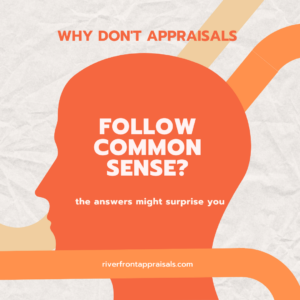
Property Taxes Just Went Up? We’ve Got You Covered!
It’s reassessment season for most folks in our area. Homeowners

Do the following terms make you nervous? Bidding war. Appraisal Contingency Escalation clause. Appraisal gap. Multiple offers.
Real estate is cyclical, so if you stay in it long enough, sooner or later, you’ll be selling homes in a hot market. A seller’s market. These markets usually pop up when rates are low, money is cheap and available, and houses are not. High demand for housing with low inventory is the perfect recipe for a seller’s market. And, when you have more buyers in a market than you have houses for them, often times those buyers will have to compete with one another for the opportunity to purchase that dream house they’ve been looking for.
Selling real estate is tough enough, stressful enough, and sometimes cutthroat enough the way it is. Then you introduce multiple offers on a home and it just gets worse. You’ve got timing to consider, you’ve got your client’s best interest to protect, you’ve got other duties you have to fulfill, you have to walk though all the offers with your seller, or try & craft the best offer for your buyer.
And then, there’s the appraisal.
Let’s say you and Agent Kim worked hard and negotiated the best deal possible for both the seller and buyer. It’s a crazy hot market and to no one’s surprise – the home received seven offers within 48 hours of being listed. The signed contract is submitted to the lender and the appraisal is ordered. You cross your fingers. You pray. You lose sleep. But it doesn’t have to always be so bad.
Here are a few tips to make your next multiple offer sale go a little smoother. At least in the appraisal department.
You probably learned this during your training, but it bears repeating. Why? Because so much confusion still exists about this term market value. In most purchase transactions, the appraiser is tasked with developing an opinion of market value. We can’t just make up a definition, so we often use the definition provided by Fannie Mae. In part, we learn the
following:
Market value is the most probable price that a property should bring in a competitive and open market under all conditions requisite to a fair sale, the buyer and seller, each acting prudently, knowledgeably and assuming the price is not affected by undue stimulus. Implicit in this definition is the consummation of a sale as of a specified date and the passing of title from seller to buyer under conditions whereby:
We’ll talk more about the underlined portions I added, later. But for now, what you need to know, and relay to your clients is that even though you may have won the bid, that high price you’re paying may not represent market value.
Why not?
I’m sure you’ve had buyers and sellers argue “Well that’s what we agreed on paying or selling the home for and the other party agreed. Therefore, that’s market value!”. Am I right?
However, there are two key phrases in the definition above that can call into question this line of thinking: undue stimulus and typically motivated. It is my argument that in a multiple offer situation, most buyers and sellers are not typically motivated as they would be in a more stable market. And, most buyers experience undue stimulus.
In a stable market, the home might be listed for $245,000 and a buyer comes along after the home has sat on the market for 60 days. The buyer offers $225,000, the seller counters at $235,000 and they’re both happy. Sign the contract, move to closing.
In a multiple offer situation, the home is listed for $245,000 and twelve buyers come to the first open house and eight of those make offers within 24 hours of seeing the home. The offers range all the way from $245,000 – $350,000. The listing agent informs all parties that they’re in a multiple offer situation. “Make your best offer! We’ll look at all the offers by 8pm on Thursday.” The sellers are now highly motivated to make as much money as possible, and the buyers are all losing their minds because in order to get this house, they’ll have to offer more than asking, and maybe move money out of their retirement or savings account. They’ve missed out on the last four deals because their offer wasn’t accepted, and they are not going to miss out on this one!
Does that sound “typically motivated” to you?
Knowing this can be super helpful when you walk your clients through a multiple offer situation. An appraiser’s job (see below) is to develop an opinion of market value, and sometimes multiple offer situations fail the test of market value. “That means, Mr. Seller or Mrs. Buyer, that the home might not appraise for the contract price. So let’s get a contingency plan in place just in case.”
Some think that in a multiple offer situation, the home should always appraise. This is usually because some don’t understand the role of an appraiser. I’ve heard it said that the appraiser’s role is to protect a bank’s investment. While that may be partly true (we’ll discuss later), that line of thinking just creates more problems.
I read a blog once where a Realtor said the job of an appraiser (in multiple offer situations) is not to determine the home’s value based on comparable sales but to ask “if the lender needs to take back this home (in foreclosure) and sell it, is there another purchaser out there who might pay what the current purchaser is offering?”
If a home goes under contract at $175,000 and the appraiser learns of multiple offers at and above $175,000, then what the Realtor above was trying to say is the appraiser should always hit the contract price. Why? Because there was more than one party willing to buy the home at $175,000 or higher. And, if all the appraiser is concerned about is protecting the bank’s interest, then it should be all good! According to this Realtor, multiple offers prove that multiple people were willing to pay whatever price, and that’s all the bank wants to know.
Not exactly.
A subtle but hugely impactful shift needs to take place in this line of thinking. The bank does in fact hire the appraiser so that they can determine their risk position. Part of their thought process is “If I loan $325,000 on this home, is the down payment, interest rate and term, altogether with the appraised value, worth it to me? Will I get some (or most) of my investment back in the chance the borrower defaults?” So the appraiser does develop an opinion of value that the bank uses in deciding whether or not to loan money, in determining their risk tolerance, and several other factors.
However, that never changes the fact that the appraiser is working in an unbiased, objective and independent manner.
That one statement changes everything.
It’s all about perspective. While the bank will rely on the appraisal to make their financing decisions, the appraiser has no skin in the game. None. Not at all. In fact, the appraiser has no interest whatsoever in the transaction closing, or the homeowner getting to refinance their mortgage. Not because we’re all a bunch of heartless robots, but because we simply cannot care. Not in a way that affects our ability to do our job in an unbiased manner. If I go into an assignment with the goal of ‘protecting the bank’s interest’, then I’m acting as an advocate for that bank and I’m no longer an appraiser.
I won’t go into too much detail here, as we’ve covered this material before. However, some of it does bear repeating. As you’ve read before, communicating with the appraiser is acceptable and can be extremely helpful. Things I encourage you to discuss with your appraiser include updates made to the home, any relevant property information that the appraiser might not easily uncover, how you priced your home (comparable sales), and if there were multiple offers.
Appraisers can only be as good as their information. If the information they use to develop their opinions is rock solid and supported, then the appraisal report will be as well. So I say all the time, I’ll take as much information as I can get. I may not always use it or find it helpful, but it’s always good to have more information than not enough. The same goes for contracts and offers. Most of the time it’s hard to determine just from reading through a purchase agreement if there were multiple offers. Obviously a sale price higher than list price is a good indicator but there are other reasons this could happen as well. So when the appraiser calls or texts to set up an appointment, make sure you let her know. “Hey I just wanted to make sure you know we had eight offers on this home and we agreed on the one for $425,000 that will close in three weeks.” Simple. Now the appraiser knows why your $399,000 listing is selling for $26,000 higher than list.
One final thing to mention from that definition of market value we looked at earlier. In most appraisal assignments for a purchase, the appraiser is determining – from the market – an opinion of value. Market value. And part of our definition includes the term most probable price. Notice that it doesn’t read highest possible price. There’s a difference. You get 10 offers on your listing which was priced at $279,900 and the offer you decide to go with is $325,000. It’s not the appraiser’s job to find sales that support a sale price of $325,000. Maybe it’s worth $325,000. Maybe it’s worth more! Or maybe less. Either way, the market will show the appraiser. It always does.
And so, with good communication and a better understanding of the appraisal process, you’ll be set up for much greater success – especially the next time you get into a multiple offer situation.
Committed to helping you understand your home’s market value,
Ryan Bays, SRA, AI-RRS

It’s reassessment season for most folks in our area. Homeowners

I feel like we all need a laugh. How about

So this may be a slight break from the norm,
Riverfront Appraisals has been providing comprehensive valuations of residential properties to Western Kentucky and Southwestern Indiana since 2008.